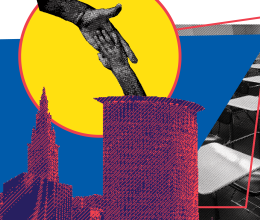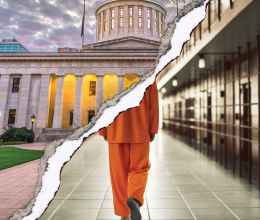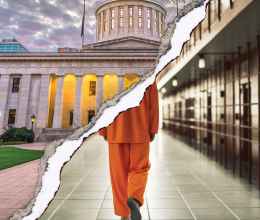After bringing the legendary Selma marches to the big screen, Ava Duvernay returns with a new Netflix documentary, 13th, telling the true story behind the 13th amendment. Passed in 1865, it declared that "Neither slavery nor involuntary servitude, except as a punishment for crime whereof the party shall have been duly convicted, shall exist within the United States, nor any place subject to their jurisdiction." The amendment was one of the most important in history, yet its wording enabled slavery to evolve in America, allowing discrimination against African Americans to continue within our justice system.
Following the abolition of slavery, though the southern economy was shattered, the 13th amendment had a loophole: slavery was still legal if used as punishment for crime. Immediately following the civil war, southern legislators passed a series of laws called the Black Codes, resulting in African Americans being arrested for even the smallest misdemeanors and pressed into servitude.
Though the Black Codes, and their successors, the Jim Crow Laws, were eventually overturned in the face of the Civil Rights Movement, America began an era of mass incarceration in the 1970s. Many Americans were demanding the government crackdown on crime and in response, Richard Nixon declared a “war on drugs.” Many other politicians, including Ronald Reagan and Bill Clinton, would continue Nixon’s work. Law enforcement was given permission to arrest and incarcerate individuals for almost any drug crime, and they disproportionately targeted Black communities. Possession of powder cocaine for example, which was more often used by White people in America, received less severe punishments than possession of crack cocaine, which was much more prevalent in Black communities. In just 20 years, the prison population had nearly tripled from 350,000 to over a million. Meanwhile, an entire generation of African-American leaders were under attack. Some were arrested and others were killed; Fred Hampton, a leader of the Black Panthers, was shot and killed in his own home by police.
Incarceration rates continued to climb after President Bill Clinton passed the Violent Crime Control and Law Enforcement Act of 1994. The bill increased funding for law enforcement and incarceration, expanding prisons to hold hundreds of thousands of inmates. Furthermore, the powerful lobbying group American Legislative Exchange Council has lobbied for laws that would cause an increase in arrests, including “three-strikes” bills and mandatory minimum sentencing. CoreCivic, a private prison corporation, is now a multi-billion dollar company getting rich off of punishment thanks to ALEC.
For more information on Core Civic, watch the ACLU’s award winning documentary "Prisons for Profit".
Slavery and Jim Crow laws may be gone and discriminatory laws are no longer explicit, but politicians and law enforcement are able to work the system in a way that hurts the Black community just the same. Today, 1 in 3 Black men will go to jail in their lifetime, while only 1 in 17 white men will be sent to jail. Today, the American prison population is well over two million, about double what it was in 1990. And still today, police violence towards African Americans is rampant. However, Michelle Alexander, author of The New Jim Crow: Mass Incarceration in the Age of Colorblindness, explains that police violence is not the only problem, “It’s reflection of a much larger, brutal system of racial and social control known as mass incarceration, which authorizes this kind of police violence.”
Slavery has not been eliminated in America, but people continue to turn a blind eye to politicians who use the 13th amendment as a way of criminalizing African Americans. Underlying racism is still prevalent in our laws today, 13th makes this message clear.







